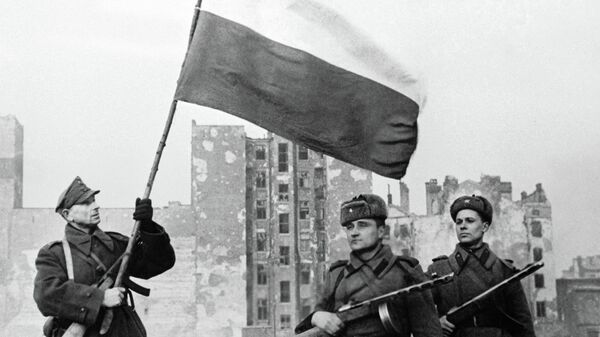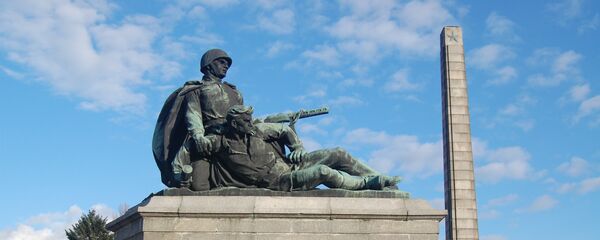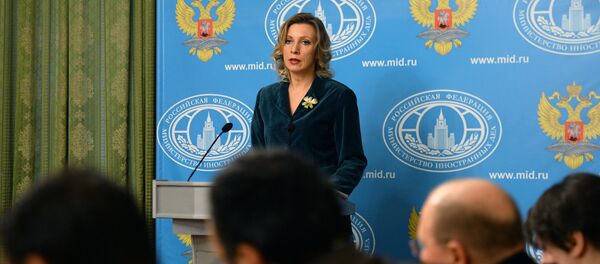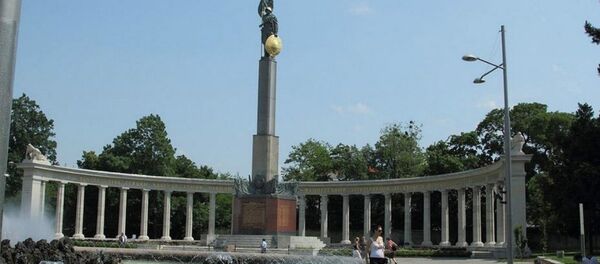Poland has stepped up its plans to dismantle Soviet-era war monuments and memorials. The project, set to be finalized and sent to local authorities within the next few weeks, was developed by the Institute of National Remembrance, a government-affiliated institute ostensibly charged with the country's decommunization.
The monuments, the Institute suggests, serve as a symbol of the "domination of the communist system in Poland," and must therefore be removed. The dismantled monuments would be 'retired', taken to museums, where they will become a 'testament to the hard times' Poland went through during the communist era.
For its part, the Polish Foreign Ministry has responded to Russian Foreign Ministry protests over the initiative by insisting that the plan would not be a violation of a 1994 Polish-Russian treaty aimed at preserving the monuments. Those monuments and memorials located at Soviet war cemeteries would remain untouched, the ministry said.
Commenting on the controversial initiative, Mikhail Markov, the director of the Russian Military-Historical Society, told Russia's Svobodnaya Pressa newspaper that they are an insult not only to Soviets soldiers, but to the Polish army soldiers who fell liberating the country from the Nazis as well.
"Poland has been carrying out this campaign for a long time now, calling it 'the process of decommunization'. The goal is to wipe out the historical memory associated with Soviet soldiers that liberated Poland, and the Red Army, which laid down six hundred thousand men doing so; more broadly, [it is a campaign] to extinguish any good memory which would bind our fraternal nations."
"In essence," Markov suggested, "the Poles are hitting not only at our countries' common historical memory, but at their own history as well. After all, where [in the new account of history] do they plan to put the Polish soldiers – the soldiers of the Wojsko Polskie, which fought shoulder to shoulder with the Red Army to liberate the country, and then then went on to capture Berlin together?"
This, Markov suggests, is done, "for example, by financing the Polish-French-Dutch film Les Innocentes, which tells the story of how Soviet soldiers allegedly raped Polish nuns during the Great Patriotic War. In other words, every means possible are being used to distort history and to defame the Soviet soldier – to present him as a degenerate who has no place in Europe."
"The 'war against monuments' is part of this policy. It aims to demonstrate that Poland, indeed, is a member of the EU, and its historical place is in Europe, whereas Russia is a pariah state. The message is that there is more contradiction and antagonism in the Polish-Russian relationship than there is cooperation. For this purpose everything connected with the Soviet period, and with the Great Patriotic War, is being erased."
Ultimately, the historian warned, this war with monuments may also be aimed at telling Russia that it owes Poland compensation for the Soviet past. "I would not be at all surprised if Warsaw soon presents us with compensation claims 'for the occupation' imposed after the war. All this is part of the vector of EU and NATO policy – aimed at our country's isolation and exile from the foundations of the world order laid down in 1945, in which our country played a key role."
Russia, Markov noted, must not only appeal to the 1994 treaty, which Russia interprets to mean the protection of all monuments, and not just those at war cemeteries, but must advance more assertive arguments about the implications of the Soviet Union's wartime efforts.
"We must say, for example, that without the Red Army, without Russia there would not be a Poland today. And Poland, and possibly all of Europe would have remained in the depths of the barbaric dark ages which fascism had prepared for them."
"For example, in the early 1990s, the monument to Marshal Ivan Konev was demolished, and this could not have fallen under this definition, since Konev was not associated with the 'communist occupation'; thanks to his talent as a commander, it was possible to save the city of Krakow, which the Germans were ready to eradicate, from total destruction. Nevertheless, Konev became the first victim of the war against Soviet monuments."
Unfortunately, Bondarenko suggested, Russia's real options for reacting to the initiative are limited. "We're not going to break off diplomatic relations. And to respond in kind is not our style. We must not allow ourselves to lower ourselves in such a way. We have memorials to the Poles in Katyn and Mednye, and they must be allowed to stand."
Ultimately, Poland's 20th century history saw it entangled in struggles between great powers – first in the titanic military confrontation between the Soviet Union and Nazi Germany, and then in the ideological Cold War struggle between the USSR and the USA. Today, after the end of the Cold War, the monuments should serve not as a symbol of ideological or political domination, as the Institute of National Remembrance suggests they do, but as a sign of respect to those hundreds of thousands of ordinary Soviet soldiers (and their Polish brothers) who died freeing Poland from Nazi tyranny. What came after is another story.





